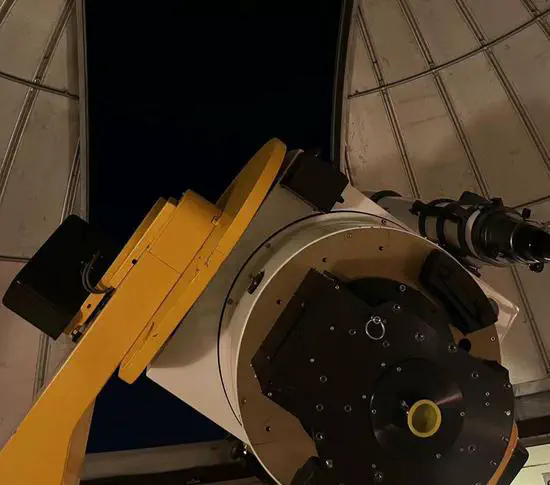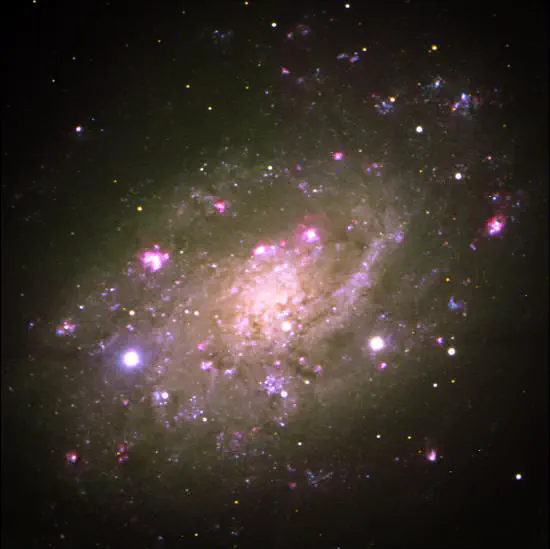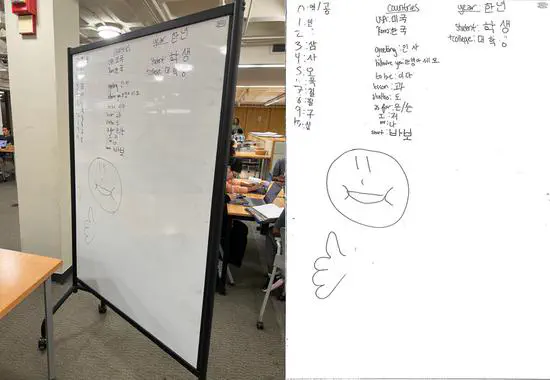Biography
My name is Le-Chris Wang (王乐). I am a first-year PhD student at Astrophysical Science Department of Princeton University. My research focus is exoplanets, specifically their formation, demographics, and atmospheres. I use both numerical simulations to study the theoretical outcomes of planet formation and a combination of space-based and ground-based observations to characterize exoplanets.
During my undergrad at Hopkins, I worked with Prof. Kevin Schlaufman and Dr. Matthew Clement on theories of planet formation. I also worked with Prof. David Sing and Zafar Rustamkulov on exoplanet atmospheres with JWST and a variety of ground-based observatories.
- Planet Formation
- Exoplanet Atmosphere
- Data Mining in Astronomy
- Galactic Archeology
- Data Science/Machine Learning
- Software Engineering
PhD in Astrophysical Sciences, 2030
Princeton University
BSc in Computer Science and Physics, minors in Applied Mathematics & Statistics and Pure Mathematics (GPA 3.94/4.0), 2025
Johns Hopkins University
Cambridge AICE & Chinese High School Diploma (GPA 4.0/4.0), 2021
Hangzhou Foreign Languages School
Recent News
| Sept 2, 2025 | Started Graduate school at Princeton University 🐯! |
|---|---|
| May 22, 2025 | Graduated from Johns Hopkins University 🐦 with double majors in physics and computer science and minors in pure math and applied math 🎓! |
| May 12, 2024 | My junior year is officially over! Time flies.... I am back in China for about two months, you may see my emails at weird hours 😈 |
| April 30, 2024 | My project on computational study of accretion modes of planet formation was awarded the 2024 IDIES Summer Student Fellowship! |
| April 26, 2024 | I presented my research on data reduction pipeline for JWST NIRISS SOSS at Physics Departmental Poster Showcase. |
| April 17, 2024 | I presented my research on 1. relation between planet formation and stellar elemental abundance and 2. WASP-96b atmospheres with JWST at DREAMS symposium 2024. |
Publications
Academic Experience
Area of expertise: exoplanet atmosphere and observational astronomy.
- Incorporated nested sampling and MCMC with gaussian prior to FIREFLy (group’s JWST reduction pipeline).
- Developed FIREFLy to be capable of JWST NIRISS-SOSS data.
- Extracted transmission spectra for HAT-P-14b (Liu & Wang et al., 2025), WASP-96b (Wang et al., Submitted), and K2-18b (Schmidt et al., 2025) with JWST NIRISS SOSS. Performed atmospheric retrieval jointly with data from various other observatories, e.g. VLT, HST, Spitzer, JWST-NIRSpec.
Area of expertise: planet formation, computational astrophysics, stellar structures, and data science.
- Assembled photometry for every star confirmed as an open cluster member by Gaia. Developed algorithms that fit HR-diagrams and reject unresolved binary stars.
- Studied elemental abundances of exoplanet hosting stars. Combining stellar evolution simulations (MESA), we showed there is no relationship between stellar photospheric elemental abundance pattern and planet formation (Wang & Schlaufman, in prep.).
- investigate the relative importance between pebble accretion and planetesimal accretion to the outcomes of planet formation directly with numerical simulations and exoplanet demographics.
Side Projects

Astrophotography
Photos of the astronomical objects I took with various observatories. I do post-processing in Python, Siril, and Adobe Lightroom.

Apache Point Observatory Reduction and Calibration TOol S (ARCTOS)
A custom data reduction pipeline built for data from the Apache Point Observatory (under development).

EZnote
Automatic note-taking tool. Won the overall second place and the Most Useful Application to Help with Learning awards at Hophacks 2022.